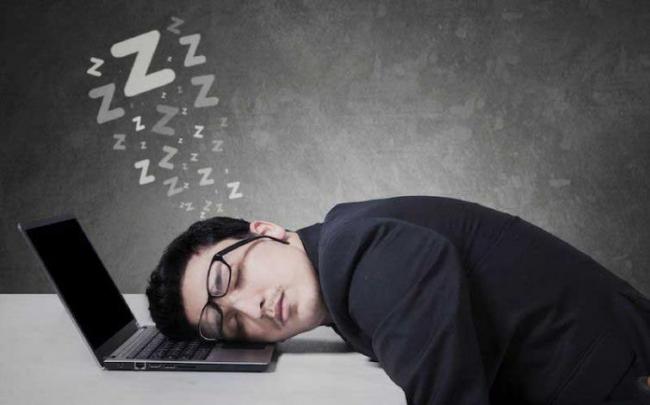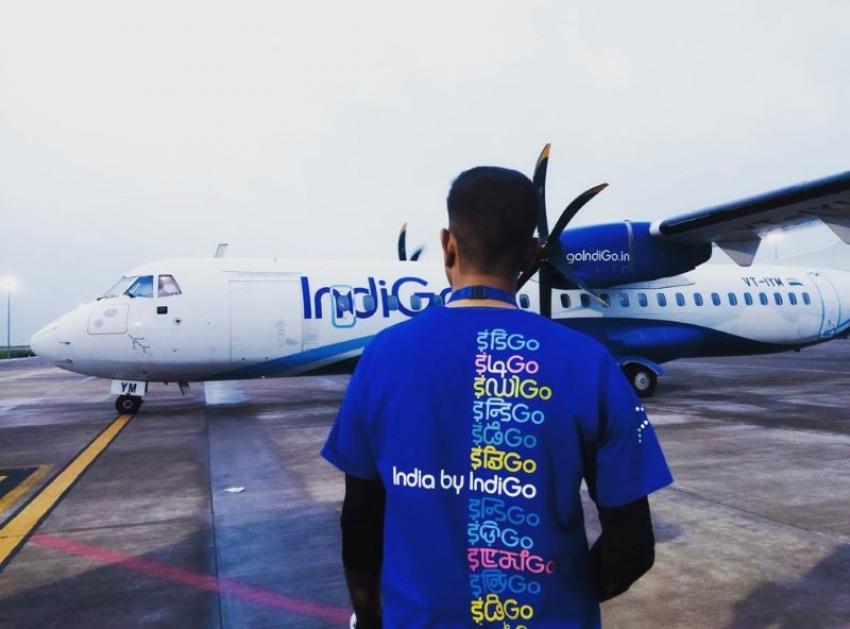NITN | @notintownlive | 03 Jun 2019, 11:46 am

Sleep is one of the states of consciousness that gives much-needed rest to the physiological functions of the body to recuperate for the next day. Sleep apnea is one of the highly underdiagnosed medical condition which can not only prevent you from having a restful sleep but also cause serious harm to your vital organs by drastically reducing the oxygen saturation levels in your body. Debayani Bose with clinical inputs from Dr. Raghavendra Rao, HOD, CAM, HCG Oncology, throws light on the medical condition and ways to manage it.
Rahul wakes up feeling excessively tired almost every day, even after a long sleep, and is often irritable and cranky. As a result, he finds it difficult to concentrate during the day and is forgetful. While this may appear as a simple symptom of stress or tension, it may also indicate a disturbed sleep pattern over a prolonged period of time.
One common and widely undetected cause of disturbed sleep is Obstructive Sleep Apnea (OSA), a medical condition where people stop breathing during sleep for intervals of 10 to 30 seconds. This may wake a person and prevent him or her from going back to sleep for the rest of the night. This can lead to feeling less refreshed after sleep, prolonged fatigue, and daytime sleepiness further leading to less productivity at work.
“Obstructive Sleep Apnea (OSA) results due to blockage of the airways due to the collapse of the tongue and other pharyngeal muscles while lying supine. The weakening of the muscles is due to fat infiltration in muscles consequent to obesity. This is also seen in patients with heart failure. In most cases, the person having OSA remains unaware as the breath stoppages don’t cause a full arising. In OSA, there is as at least an occurrence of 5 episodes of apnea-hypopnea per hour of sleep during which respiration ceases temporarily,” explains Dr. Raghavendra Rao, HOD Department of CAM, HCG Oncology.
OSA ushers in a stress response that increases blood pressure, inflammation, decreased insulin sensitivity and puts a load on the heart. Management of OSA includes the use of devices to keep the airways open, facial exercises, weight reduction, exercise and yoga.
Studies have shown that the use of continuous positive airway pressure (CPAP) devices can prevent cardiovascular events in people with OSA but the results are more profound with a weight loss regimen and exercise. Though CPAP devices have shown to reduce snoring and improve sleep quality their effects on preventing cardiovascular complications is mixed in those with moderate to severe OSA and cardiovascular disease. Studies have shown that the reduction in circumference of the neck by at least 1 cm is known to reduce symptoms of sleep apnea significantly.
“In India, there is a higher prevalence of OSA owing to low awareness, accessibility for diagnosis and treatment. Detection only occurs when doctors refer the patient to a sleep specialist or when a sleep study is conducted. It is important to bear in mind that not everyone who has sleep apnea has a snoring problem. However, loud snoring can indicate potential sleep apnea,” Dr. Raghavendra Rao added.
Despite being a common medical condition, it is believed that 85 per cent of patients with clinically significant OSA have never been diagnosed. According to a research study on OSA, as many as 1 of 5 adults have at least mild symptoms of Obstructive Sleep Apnea, while 1 of 15 has moderate to severe symptoms. OSA is, however, very different from Central Sleep apnea (CSA) which is caused by an imbalance in the brain’s respiratory control centres during sleep, and CSA is more seen in patients with heart failure.
.jpg)
OSA is a treatable condition and you need to consult your doctor if you experience any of these symptoms:
• Loud snoring often combined with gasping and choking during sleep
• Episodes in which you stop breathing during sleep
• Gasping for air during sleep
• Awakening with a dry mouth
• Morning headache
• Excessive daytime sleepiness (hypersomnia)
Patients suffering from OSA have intermittent oxygen desaturation associated with periods of apnea or hypopnea. Oxygen saturation levels below 90 percent are considered harmful. Usually, treatment is directed at correcting the apnea, which automatically prevents hypoxemia. Since OSA causes daytime sleepiness and reduces vigilance, moderate and severe sleep apnea patients are advised not to drive.
Once diagnosed one needs to monitor your sleep quality for any improvements. You need to maintain proper sleep hygiene, diet, manage weight, monitor stress and cardiac health.
The options to diagnose sleep apneas include nocturnal polysomnography (also known as a sleep study). However, Dozee, a non-wearable health tracking device which monitors and analyses your health data all while you sleep, simplifies it for you and helps you screen and monitor for sleep apnea by studying your sleep patterns from the comfort of your home.
With Dozee all you need to do is sleep keeping the Dozee below the mattress and the contactless sensor does the rest. The night recordings are then analyzed by Dozee software that gives an output Advanced Health Intelligence (AHI) score and severity of sleep apnea. Unlike one-time recording, daily recording with Dozee improves diagnosis with more accuracy and helps to evaluate the prognosis and outcomes with interventions. You can evaluate your own progress through the Dozee app on your mobile.
The following lifestyle changes can help you to manage sleep apnea.
Reduce weight: Obesity is a key risk factor for sleep apnea. As little as 10 percent weight loss can greatly reduce the number of sleep apnea episodes that occur each night.
Stop using alcohol and sedative medications: Alcohol and sedative medications are nervous system depressants. They affect the brain, causing it to function with less efficiency. Using alcohol and/or sedatives may increase the frequency and number of sleep apnea episodes that occur every night.
Exercise: There is considerable research evidence that exercise helps to improve sleep apnea even without weight loss. Talk to your physician about which exercises are right for you before embarking on a weight-loss journey.
Sleep on your side: People with sleep apnea find that sleeping on one side, rather than sleeping on their backs or stomachs helpful.
(Disclaimer: This article is for informational purposes only and is not a substitute for medical advice or treatment. Dozee is not a medical device. It is not designed or intended for use in diagnosis, prevention or cure of any disorder or illness.)
- Birbhum: Sitaramdas Omkarnath Chair at Biswa Bangla Biswavidyalay
- Rotary Club of Calcutta East Central celebrates centenary of iconic actor Santosh Dutta with statue unveiling
- Shiny things by Jinia: A luxury evolution by visionary entrepreneur, healer
- Mystique and Memories: Wiccan Brigade hosts its first Halloween Fest in Kolkata
- Rotary Club of Calcutta Samaritans hosts three-day youth leadership awards program for tribal students in Bakura
- Rotary Club, South Kolkata Vision inaugurate newly developed children's park in Sonarpur
- Akhil Bharat Jaiguru Sampradaya and Omkarnath Mission volunteers care for terminally ill patients at Mahamilan Math hospice
- Bengali couple promoting Indian music and culture among young Americans
- Indi Setu: Wildlife on the Brink: Can We Rewild a Warming World?
- Durga Puja sustainability: One of the oldest awards goes flex-free
Air Canada has introduced a new non-stop route connecting Toronto with Rio de Janeiro, with the first flight landing in the Brazilian city on Friday morning.
Air India, India’s leading global airline, and Maldivian, the national airline of the Maldives, have entered a bilateral interline partnership aimed at boosting connectivity between the two countries.
IndiGo, India’s largest airline, is grappling with one of its most severe operational crises in recent years, with widespread flight delays and cancellations disrupting travel across the country for a second consecutive day.





